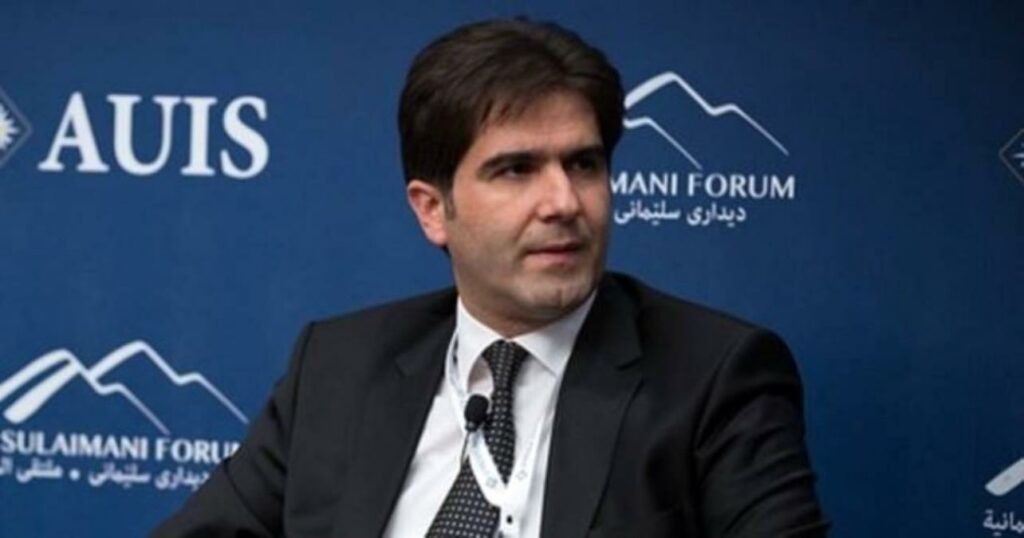Turkey and Brazil to Explore Oil in the Black Sea
On May 20-23 Brazil’s President Luiz Inacio Lula da Silva visited Turkey. Bilateral economic ties were an important element on da Silva’s agenda, who was accompanied by government ministers and leading businessmen. The visit highlighted the prospects for improving cooperation between the two emerging economies, which complements Ankara’s efforts to diversify its economic and political relations.
During his first day in Istanbul, da Silva met Prime Minister Recep Tayyip Erdogan to discuss bilateral relations (ANKA, May 20). The following day, he participated in the Turkish-Brazilian Business Council organized by Turkey’s Foreign Economic Relations Board (DEIK). In his address, he said that the two countries had failed to realize their full potential for cooperation. Noting that each county offered unique opportunities, he urged the business community to explore further investment opportunities. Miguel Jorge, Brazil’s Minister of Development, Industry & Foreign Trade, also noted that although the trade volume between the two countries quadrupled since 1999 and had reached $1,5 billion, this was still unsatisfactory. The Turkish Minister of Finance Mehmet Simsek and the head of Union of Chambers and Commodity Exchanges (TOBB), Rifat Hisarciklioglu, also suggested both economies were “rising stars” within the global economy. They highlighted many areas for enhancing economic ties including energy, construction, automotive, household appliances and tourism (www.deik.org.tr, May 21).
In an interview with the Turkish press, da Silva described the current low-key status of the bilateral relationship as absurd, and called on prompt action to reverse this trend. He added that multi-billion dollar economic investment plans, will ensure continued growth within the Brazilian economy and facilitate its rapid recovery from the global financial crisis. He noted that after coming to power, he prioritized strengthening the country’s relations with South America, and then launched new initiatives focused on Africa and Asia. He presented his contacts with Turkey as an extension of those efforts. Before arriving in Ankara, da Silva had also visited China and Saudi Arabia as part of the same tour (Hurriyet Daily News, May 21, 22).
In Ankara da Silva met his Turkish counterpart Abdullah Gul, and agreed to boost bilateral trade (www.cankaya.gov.tr, May 22). The most tangible result of his visit was in the energy sector. Following their meeting, Gul and da Silva announced that the state-owned petroleum companies, Turkey’s TPAO and Brazil’s Petrobras, signed an agreement for the exploration of oil in the Black Sea, a project estimated to be worth $800 million. Petrobras, which has invested $130 million in Turkey since 2006, will provide an additional $300 million by 2010. The TPAO will also earmark $500 million for offshore drilling (Anadolu Ajansi, May 22).
The Turkish government has hoped that the hydrocarbon reserves beneath the Black Sea might meet its growing energy requirements and reduce its dependence on imports. In recent years, the TPAO has stepped up its oil and gas exploration drilling in several sites in the Black Sea, through joint projects with international companies (EDM, June 17, 2008). The experience of Petrobras in offshore drilling plays an important role in Turkey’s decision, while the Brazilian government views this investment as a step toward asserting itself as a major global player.
Jorge Zelada, Petrobras’s international business director, said that they decided to take a risk and invest in oil exploration. He added that based on the initial prognoses, they are hopeful about finding oil (Sabah, May 22). According to the TPAO’s estimates, there are 10 billion barrels of oil and 1.5 trillion cubic meters of gas in the Black Sea. The TPAO plans to conduct drilling in different sites in collaboration with Petrobras and ExxonMobil over the next three years. If the results are positive, oil production might begin by 2017 (Hurriyet, May 23).
Turkey and Brazil’s prospects for developing an energy partnership transcend fossil fuels. To achieve energy independence, Turkey has considered investing in alternative energy sources. Given Brazil’s leading role in bio-diesels, joint investments in ethanol-based fuels was also on the agenda. De Silva proposed that Turkey and Brazil might collaborate in agriculture, to produce ethanol in Africa (Radikal, May 23).
The Brazilian delegation was also keen to promote closer aviation cooperation. One representative from Brazil’s aircraft producer Embraer confirmed that they were already in contact with Turkish firms to access this market. Although the head of Turkish Airlines said that they currently had no joint projects with Embraer, he did not rule out such future options (Dunya, May 21). Jorge also explained that Brazil will welcome projects in which both countries can produce jets jointly (Today’s Zaman, May 22).
Both countries are major powers within their respective regions, and as emerging economies, their markets offer lucrative business opportunities. Equally important, given their location, they also provide access to the surrounding markets. However, although they have attracted foreign investments, their level of bilateral trade remains low. To sustain their economic growth and reduce the impact of the global financial crisis, both countries are seeking to penetrate new markets. In particular, Turkey wants to sign a free trade agreement with Mercusor to eradicate the duties on Turkish exports to South America, which has been long delayed. President Gul and the representatives of the Turkish business sector, solicited President da Silva’s assistance to conclude this deal. If de Silva can accelerate these negotiations and ensure that the deal is concluded in time for Erdogan’s visit to Brazil next year, it will mark a significant achievement for the Turkish government.
https://jamestown.org/program/turkey-and-brazil-to-explore-oil-in-the-black-sea/
